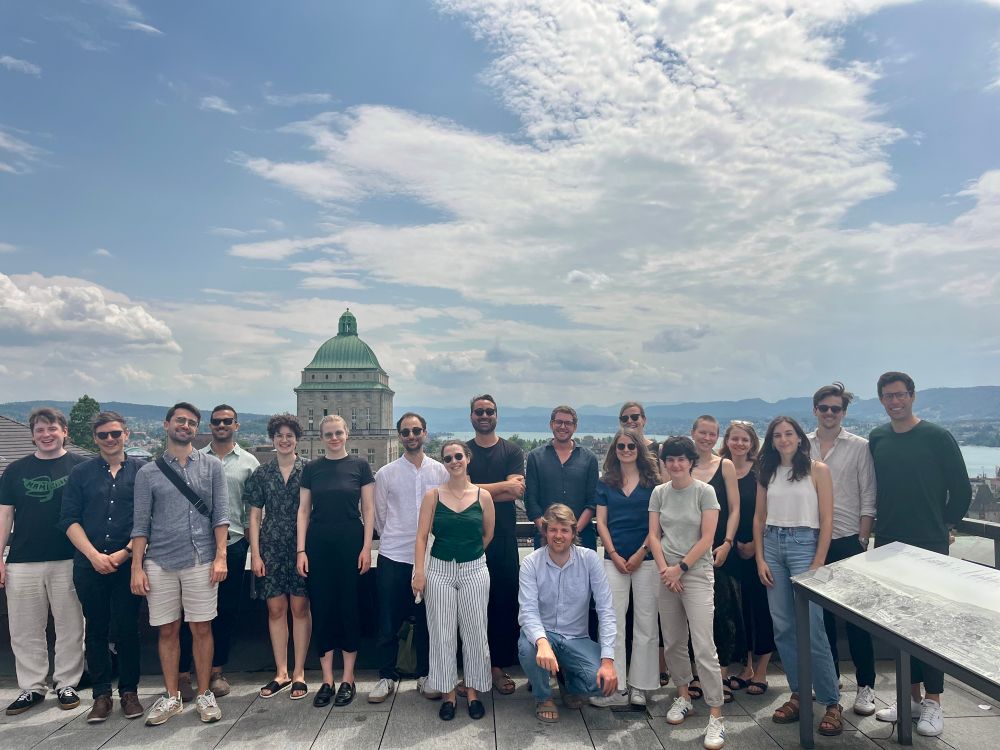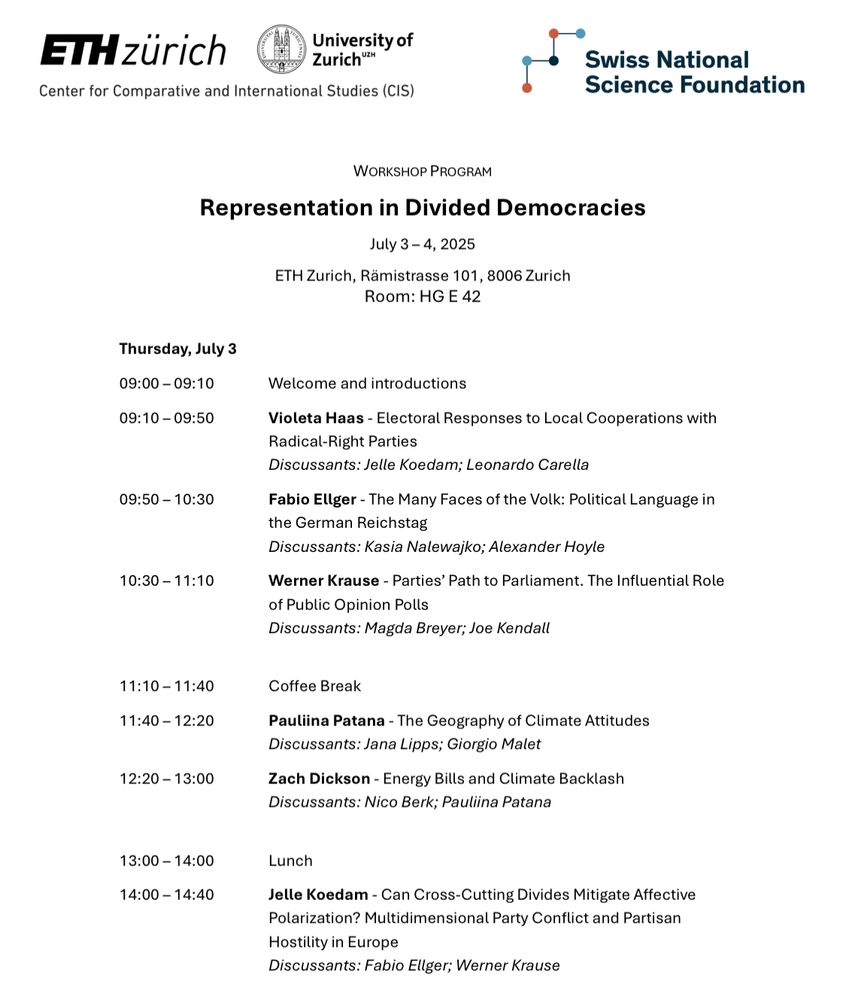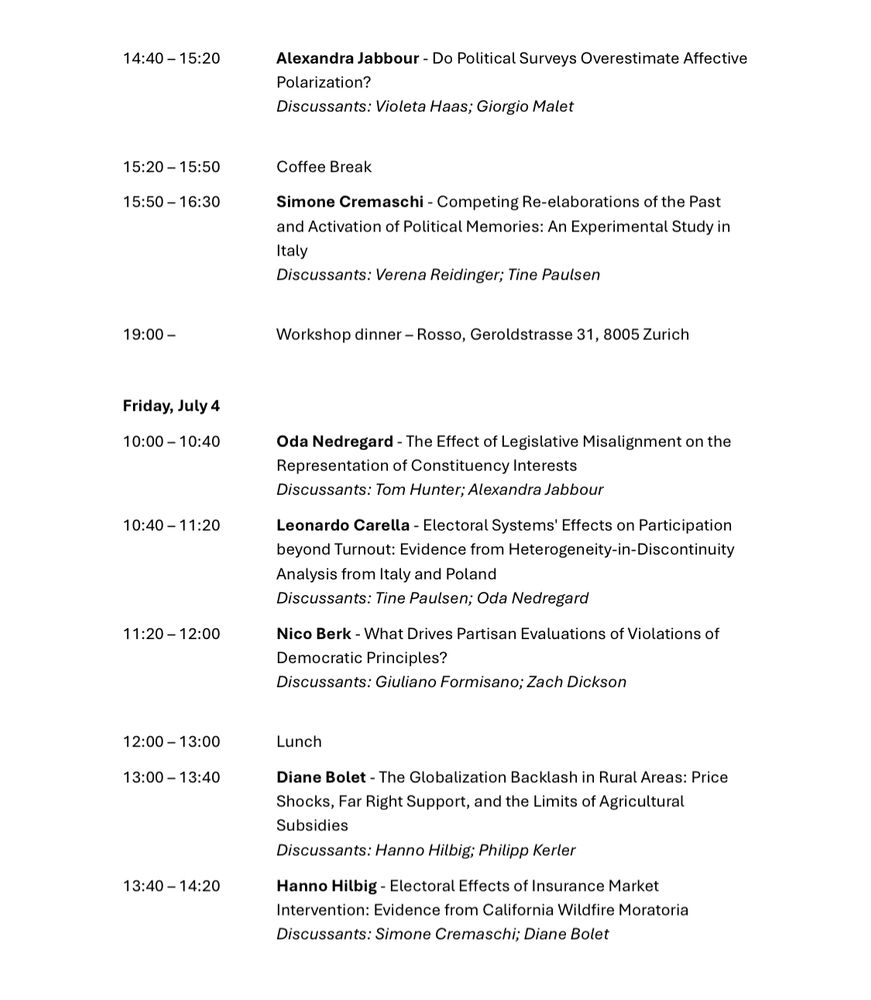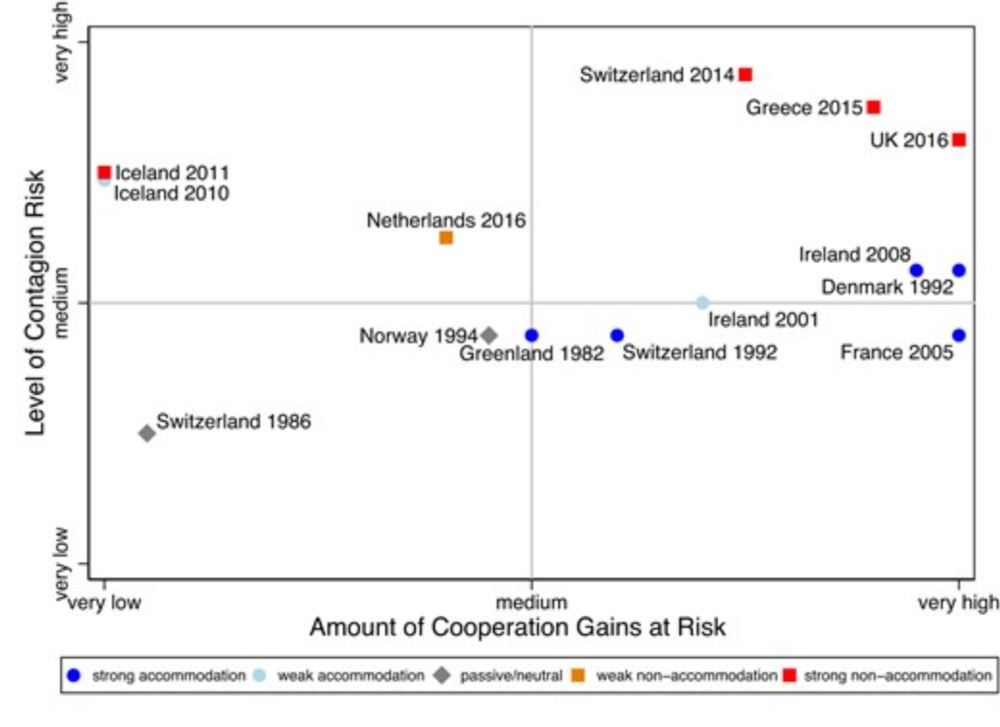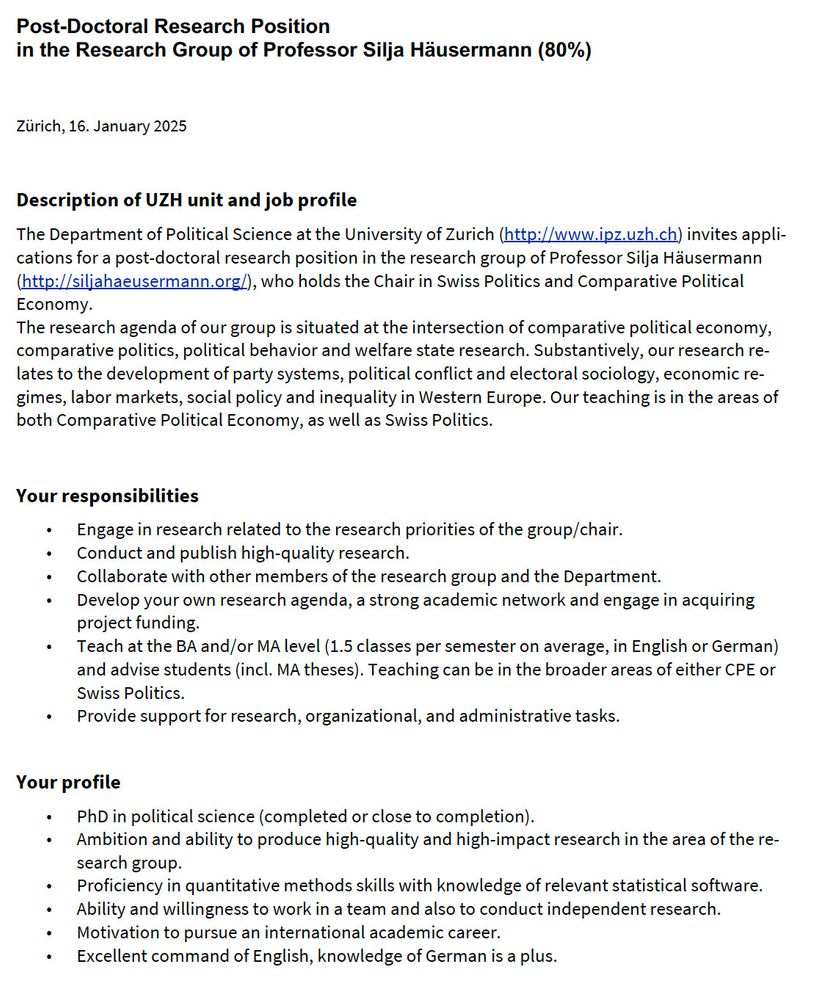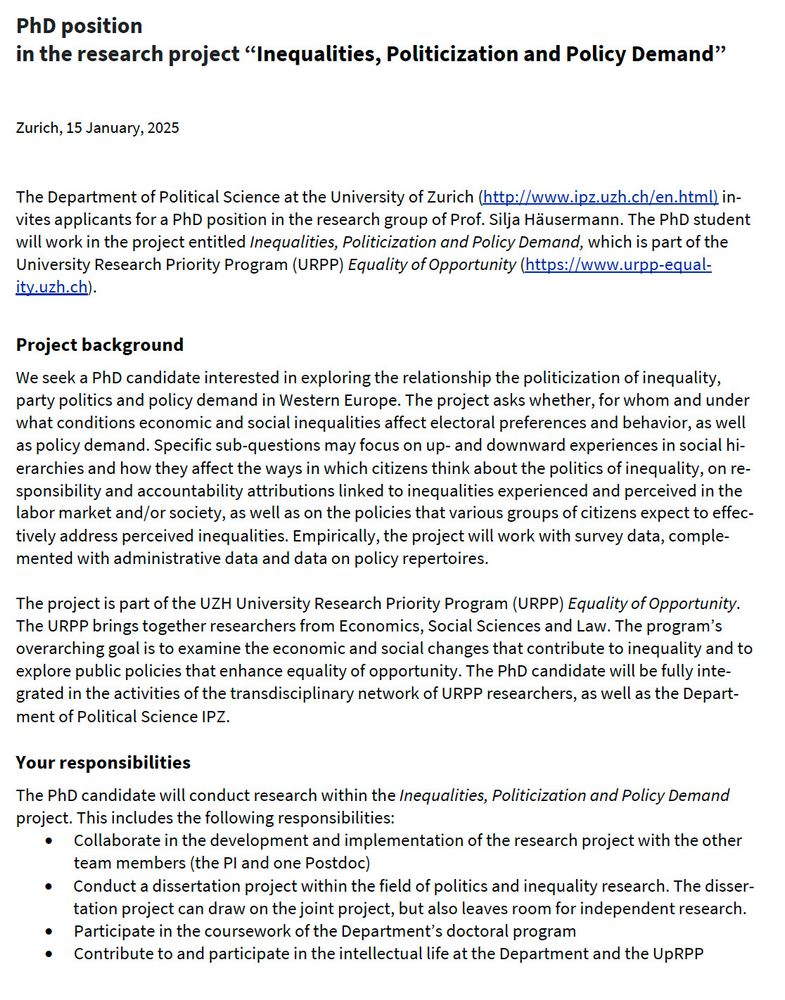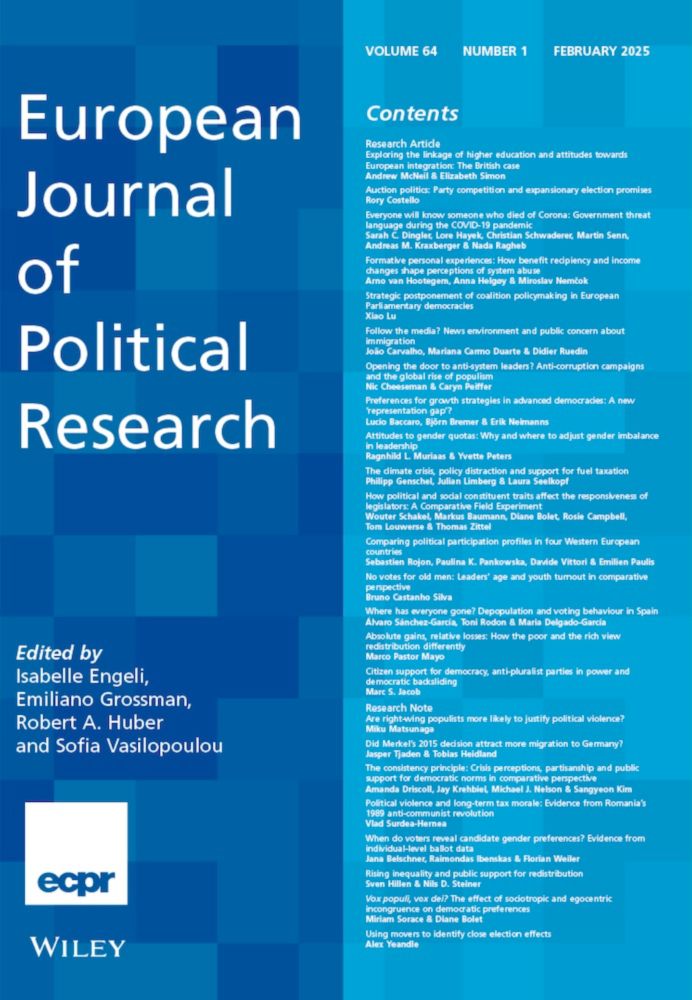You have work on politics in Europe, European integration or the EU?
Submit it to next year's @epssnet.bsky.social conference section on "European and EU Politics“ 👇
@bjornhoyland.bsky.social & I are open to diverse proposals with a European dimension.
25.09.2025 19:07 — 👍 43 🔁 24 💬 2 📌 0

Now out in @cpsjournal.bsky.social. In our new article, @denis-cohen.bsky.social @thmskrr.bsky.social and I show that where local rent prices increase more, residents with lower incomes become more likely to support the radical right AfD.
journals.sagepub.com/doi/10.1177/...
25.09.2025 05:58 — 👍 320 🔁 123 💬 4 📌 18
Sage Journals: Discover world-class research
Subscription and open access journals from Sage, the world's leading independent academic publisher.
New publication with @kgattermann.bsky.social :
“Does media framing of election results affect whether voters perceive parties as election winners or losers?”
@polstudies.bsky.social
doi.org/10.1177/0032...
A short 🧵:
25.09.2025 08:31 — 👍 36 🔁 16 💬 1 📌 1
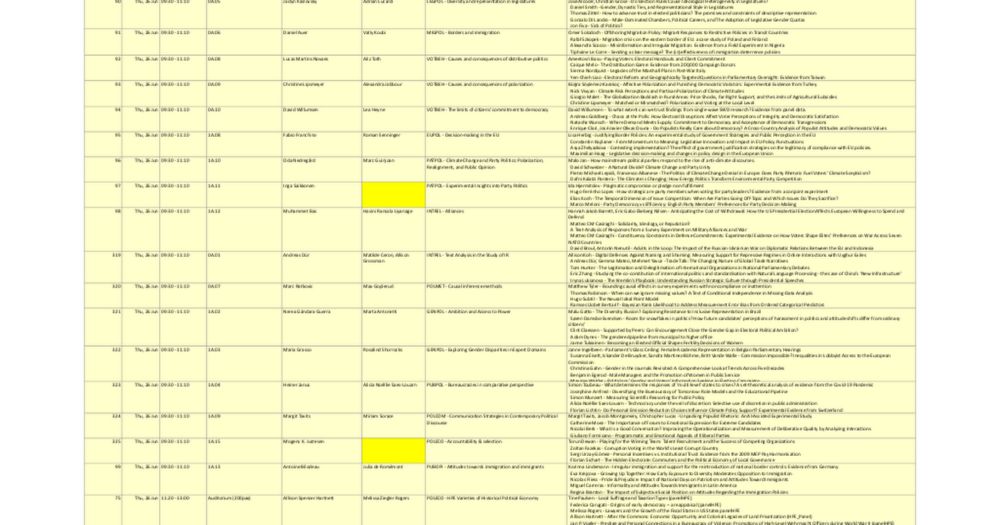
Full Conference Overview_EPSA.2025.xlsx
🚨EPSA 2025 friends, Program Committee co-chair here....
We still have a few great panels missing discussants!!
**Details below: 1/n**
PLEASE RETWEET AND CONSIDER DISCUSSING :)
docs.google.com/spreadsheets...
if you are able to assist with any of these roles please email: info@epsanet.org ASAP
13.06.2025 10:51 — 👍 3 🔁 6 💬 1 📌 3
Thanks a lot for the excellent comments, Ruben!
09.06.2025 09:24 — 👍 1 🔁 0 💬 0 📌 0
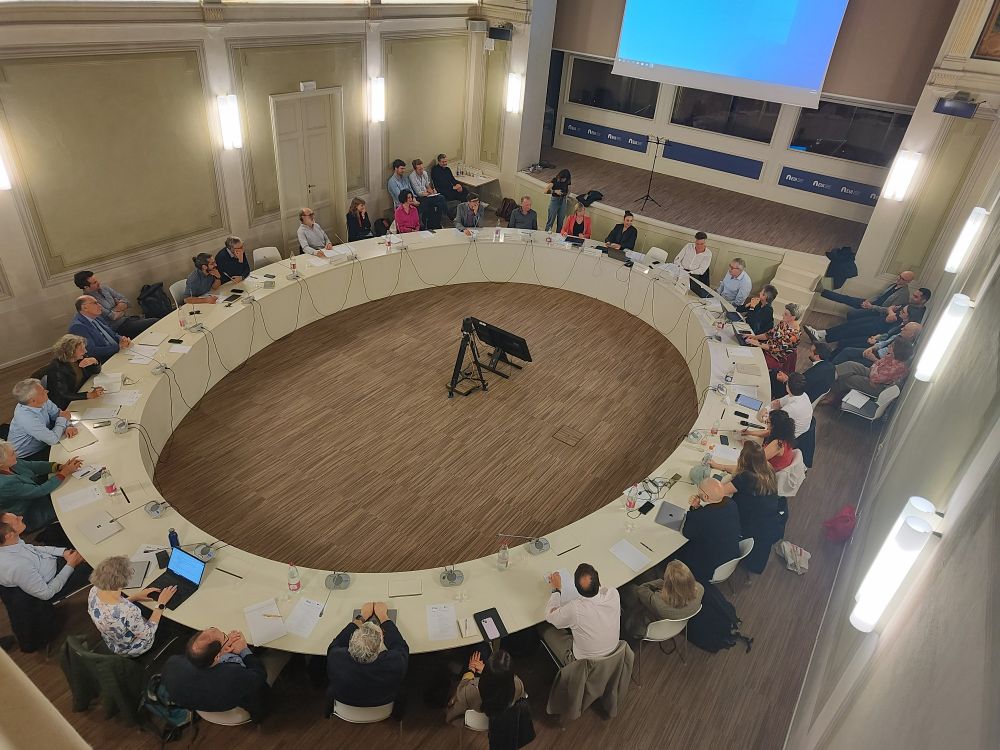
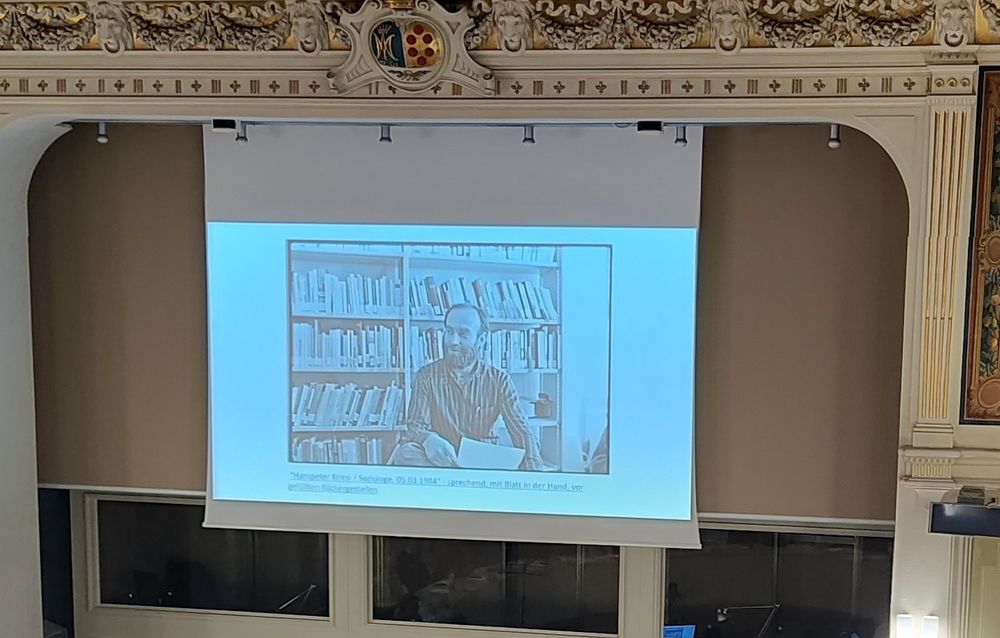
Great tribute to Hanspeter Kriesi's impressive research career now happening at the European University Institute. @eui-sps.bsky.social @eui-eu.bsky.social
16.05.2025 10:42 — 👍 25 🔁 2 💬 1 📌 1
Brexit has featured prominently in the Swiss debate about CH-EU relations. Here we provide a more systematic study, using panel data to study changes in attitudes over time.
14.05.2025 09:29 — 👍 4 🔁 1 💬 0 📌 0
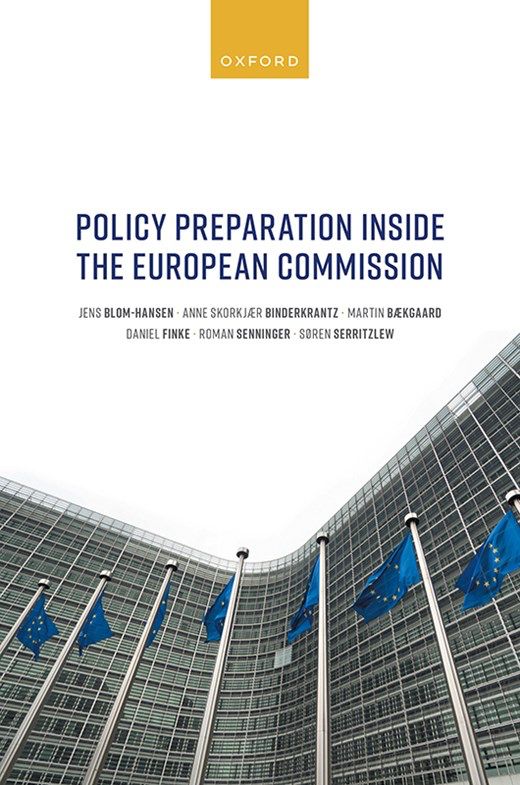
🚨 New book alert!
Policy Preparation Inside the European Commission is out with OUP @oxfordacademic.bsky.social
It’s about the behind-the-scenes stage of EU policymaking that shapes everything—yet rarely gets the spotlight: how the Commission prepares its proposals.
Link: doi.org/10.1093/9780...
01.05.2025 08:39 — 👍 54 🔁 20 💬 3 📌 1
🚨3-Year Postdoc Position in Zurich @ipz.bsky.social
❓Political implications of labor market transformation
Plenty of flexibility, no teaching obligations, great research environment in an highly livable city.
Deadline: May 18, 2025.
tinyurl.com/postdoczurich
#polisky #poliscijobs #psjminfo
30.04.2025 12:27 — 👍 88 🔁 82 💬 2 📌 8
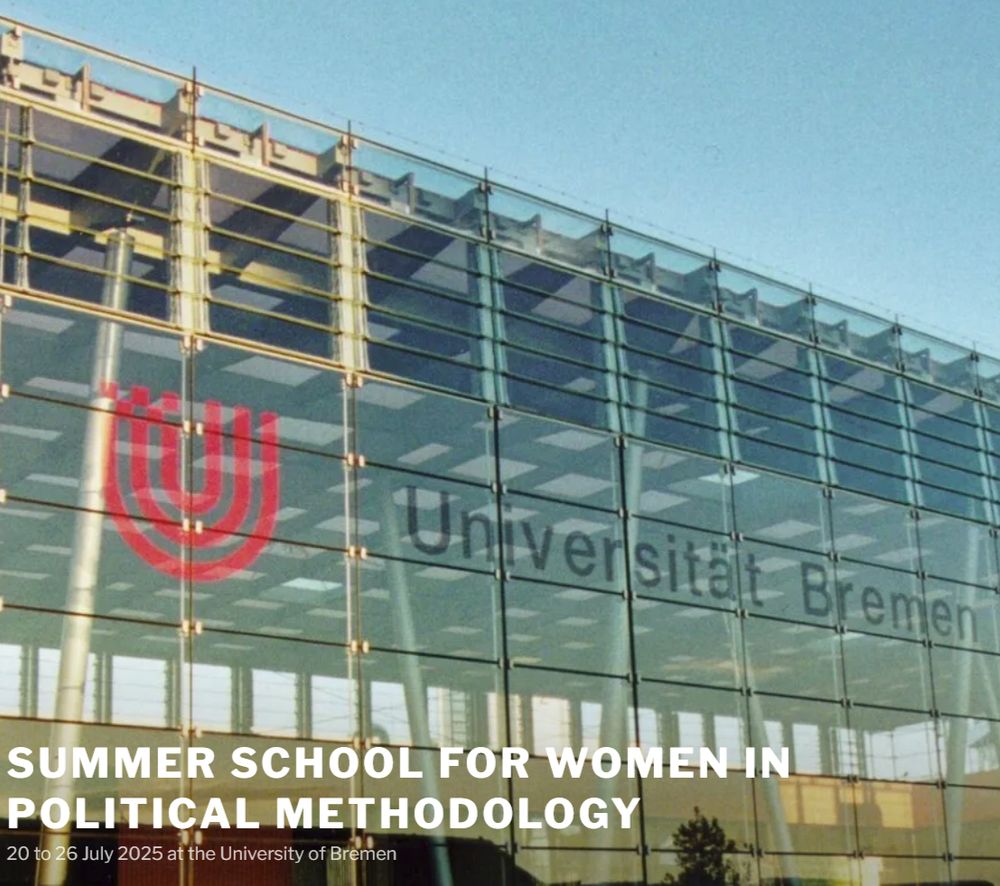
Image of a building of the University of Bremen with the text "Summer School for Women in Political Methodology" and "20 to 26 July at the University of Bremen" writen on it.
🚨 Join us for the next edition Summer School for Women* in Political Methodology in Bremen 🚨
Open to PhD students and early career scholars Fully-funded places available for applicants, deadline 1st of May 📅 summerschoolwpm.org
14.04.2025 15:01 — 👍 107 🔁 94 💬 2 📌 7
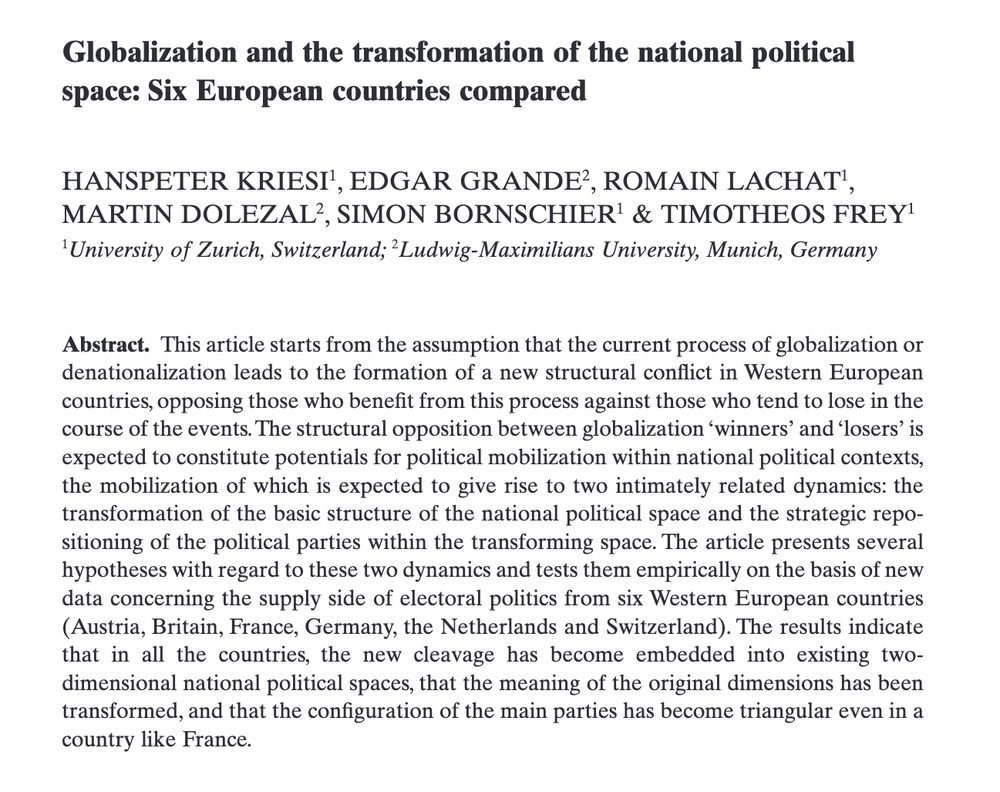
There have been many "new cleavage" articles in the 1990s and 2000s, but I have always found this particular one to be the most insightful and prescient. 👇
16.04.2025 13:38 — 👍 68 🔁 9 💬 3 📌 0
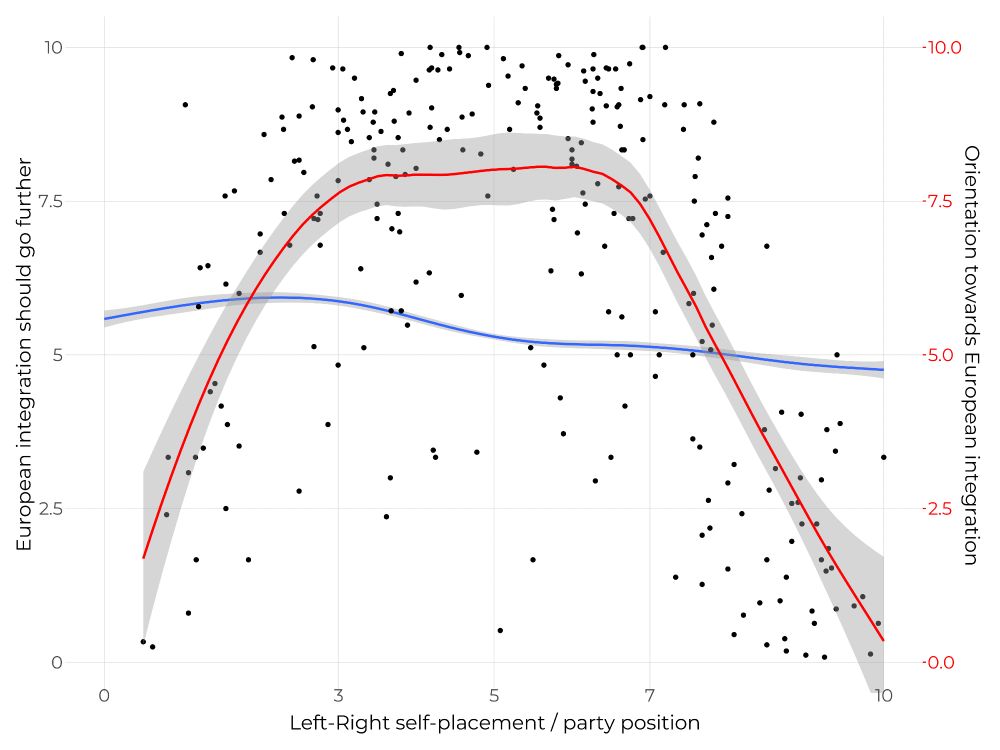
Average support for further European integration of citizens (blue line, based on GAM with cubic regression splines) and positive orientation towards European integration of political parties (black dots and red line, based on a local polynomial regression) as functions of left-right self-placement of the citizens and general left-right party positions as estimated by experts. Originally, party positions on European integration are scored on a 1-to-7 scale, which has been rescaled from 0 to 10 to match the public opinion data. Data: ESS Wave 11 (2023), CHES (2024).
How do attitudes to 🇪🇺 European integration relate to political ideology and policy preferences?
A major update of my study:
- I added the latest 2023 ESS data for citizens and 2024 CHES data for parties
- I built an app to explore these relationships across datasets, indicators, years & countries
14.03.2025 08:46 — 👍 52 🔁 19 💬 2 📌 2
Very happy that my paper has just been published at @apsrjournal.bsky.social!
Do insurgents help or hurt genocide targets? Contrary to common belief, I find that insurgent presence reduced Jewish victimisation during the Holocaust in France.
Here's what I discovered 👇
1/6
06.03.2025 14:34 — 👍 80 🔁 26 💬 8 📌 1
News from the DISINTEGRATION project:
In a new working paper, @giorgiomalet.bsky.social, @tommccraehunter.bsky.social, @scherzinger.bsky.social and I find that how people view the EU is influenced by what kind of EU policies the media are focusing on and how this chimes with people‘s preferences.
05.03.2025 13:40 — 👍 10 🔁 3 💬 0 📌 0
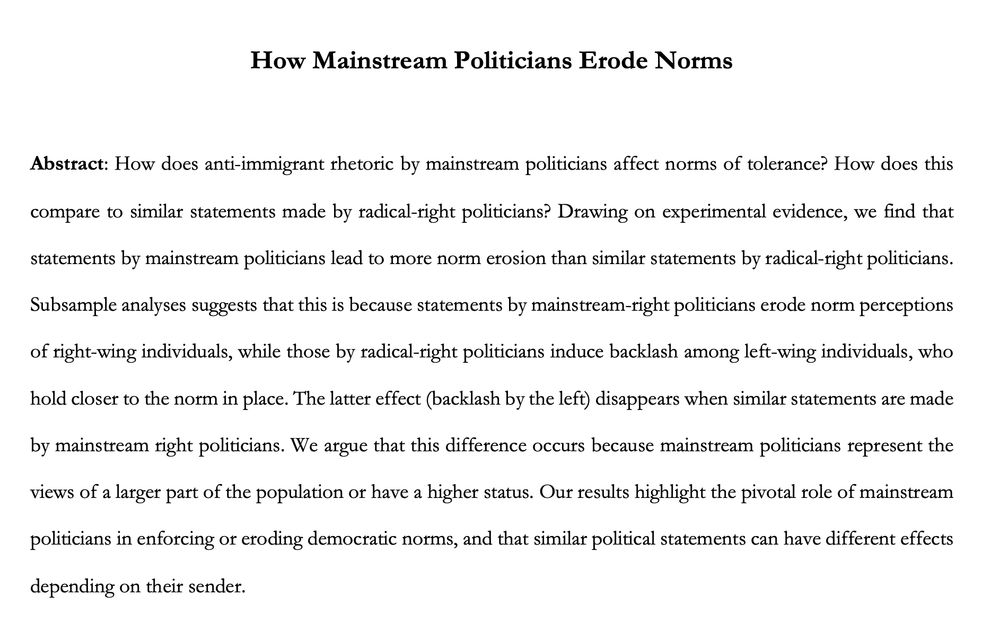
Abstract: How does anti-immigrant rhetoric by mainstream politicians affect norms of tolerance? How does this compare to similar statements made by radical-right politicians? Drawing on experimental evidence, we find that statements by mainstream politicians lead to more norm erosion than similar statements by radical-right politicians. Subsample analyses suggests that this is because statements by mainstream-right politicians erode norm perceptions of right-wing individuals, while those by radical-right politicians induce backlash among left-wing individuals, who hold closer to the norm in place. The latter effect (backlash by the left) disappears when similar statements are made by mainstream right politicians. We argue that this difference occurs because mainstream politicians represent the views of a larger part of the population or have a higher status. Our results highlight the pivotal role of mainstream politicians in enforcing or eroding democratic norms, and that similar political statements can have different effects depending on their sender.
Very happy that our paper (w/ @dziblatt.bsky.social & E Dinas) has been accepted @bjpols.bsky.social .
We've seen the center right increasingly adopt far-right rhetoric.
Our experiment in 🇩🇪 finds that this erodes anti-prejudice norms *more* than when the far-right employs similar rhetoric.
1/3
28.02.2025 14:05 — 👍 459 🔁 202 💬 10 📌 25
How should we study party polarization in Europe?
Happy to share that our paper on *multidimensional* polarization is now out @bjpols.bsky.social! (more 👇)
26.02.2025 09:39 — 👍 75 🔁 32 💬 2 📌 3
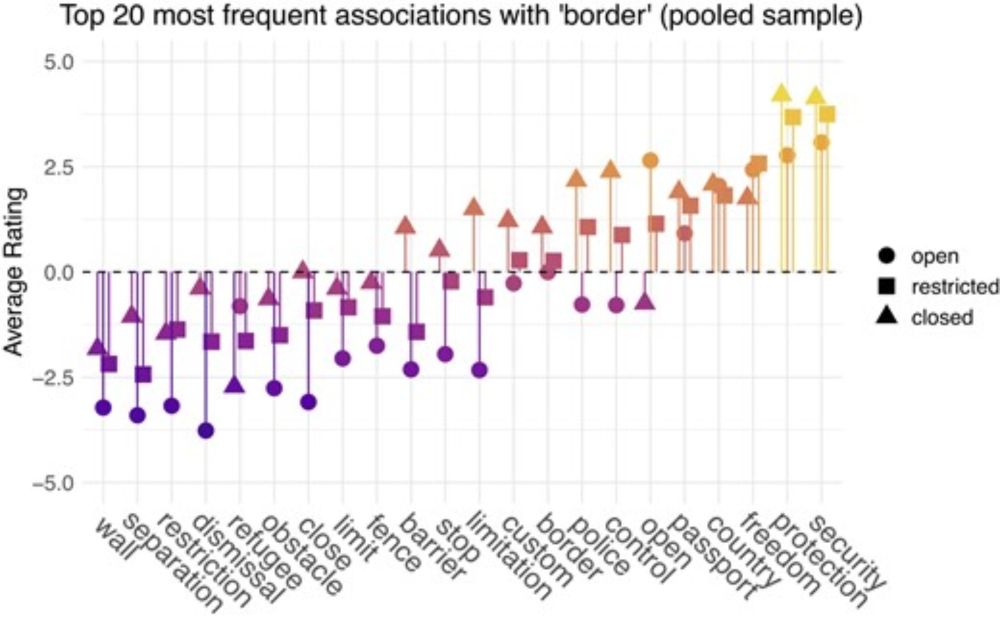
Understanding Preferences over Borders
Abstract. The governance of international borders has evolved into a contentious issue of political competition along the cosmopolitan-nationalistic divide
we talk about borders all the time, but how do citizens think about them?
pretty cool article by my (former) @ethzurich.bsky.social colleagues @ronjasczepanski.bsky.social, @giorgiomalet.bsky.social and Jana Lipps based on survey research
academic.oup.com/isq/article/...
20.02.2025 08:01 — 👍 5 🔁 1 💬 0 📌 0
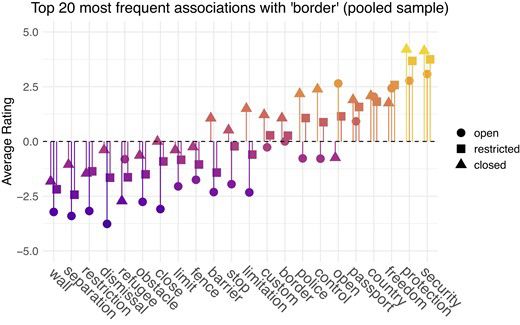
Understanding Preferences over Borders
Abstract. The governance of international borders has evolved into a contentious issue of political competition along the cosmopolitan-nationalistic divide
With the amazing Jana Lipps and @giorgiomalet.bsky.social we have a new publication in ISQ! We explore and theorize citizens’ preferences for border securing policies using open-ended survey responses and a conjoint experiment academic.oup.com/isq/article/...
12.02.2025 13:57 — 👍 52 🔁 14 💬 3 📌 0
Very excited to present my latest work tmr with @giorgiomalet.bsky.social on the political behaviour of farmers in times of growing environmental regulations
27.01.2025 16:56 — 👍 11 🔁 2 💬 0 📌 0
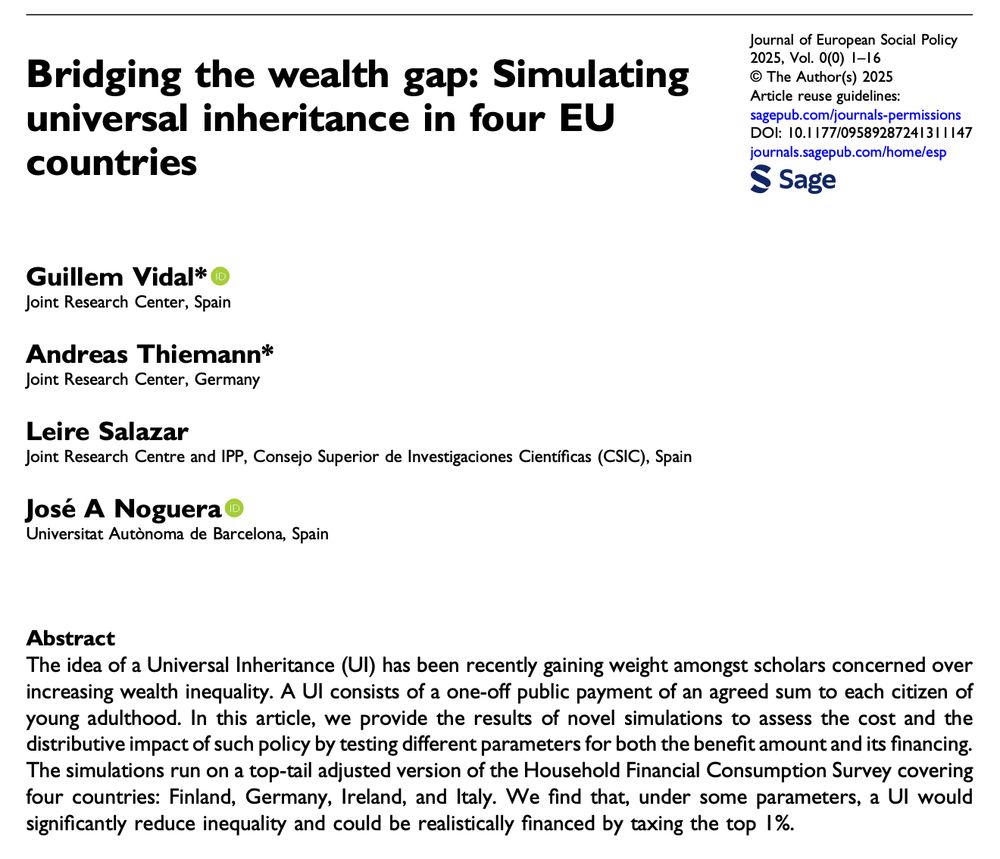
Can a public wealth transfer to young people reduce inequality?
New article out in the Journal of European Social Policy with Andreas Thiemann, Leire Salazar and @josenoguerauab.bsky.social!
🧵 Thread 👇
08.01.2025 08:44 — 👍 77 🔁 45 💬 5 📌 5
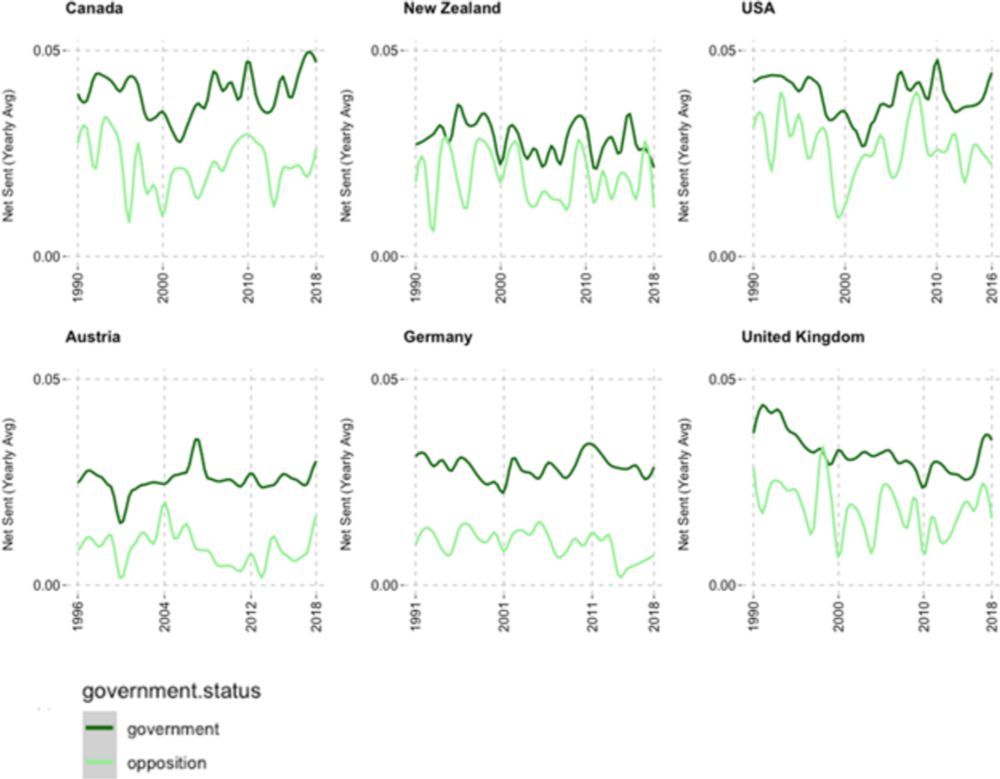
International organizations in national parliamentary debates - The Review of International Organizations
This data article introduces IOParlspeech, an original dataset of over 600,000 statements on international organizations (IOs) in parliamentary debates in six countries between 1990 and 2018. We expla...
What a nice way to start work in the new year:
Tom Hunter’s and my article introducing a new dataset on how IOs are discussed in parliaments just came out in RIO, as part of a special issue on domestic politics and IOs edited by @reneebowen.bsky.social, Lawrence Broz & @cjschneider.bsky.social
06.01.2025 13:58 — 👍 25 🔁 11 💬 0 📌 3
This is a really cool paper, which I recommend to those interested in public opinion in IR, IO's, and legitimacy.
26.12.2024 14:34 — 👍 18 🔁 7 💬 1 📌 0
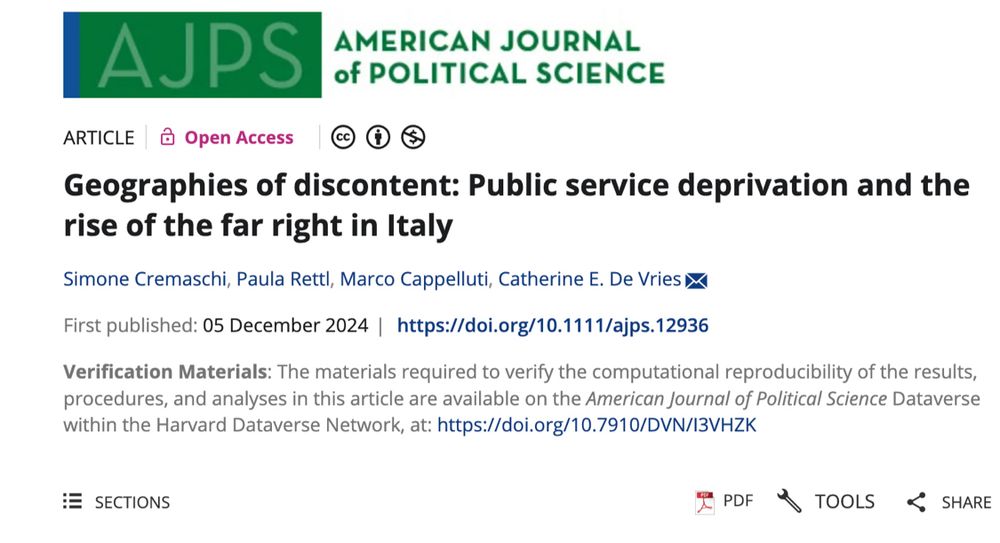
https://shorturl.at/zQ8bJ
New paper published @ajpseditor.bsky.social
Showing that reduced access to public services fuelled far right support in 🇮🇹
Existing work on far right highlights globalization & migration grievances, what about people’s experiences with the state?
We use 🇮🇹 reform to find out
shorturl.at/zQ8bJ
05.12.2024 17:22 — 👍 828 🔁 387 💬 26 📌 84
OSF
Farmers are protesting in Westminster, what might the political consequences be?
Our research on farmer protests in 🇳🇱 provides some clues.
osf.io/preprints/os...
Bottom line: due to popularity of farmers + media bias, this likely creates major political headache for Starmer government.
🧵
20.11.2024 09:21 — 👍 62 🔁 30 💬 8 📌 9
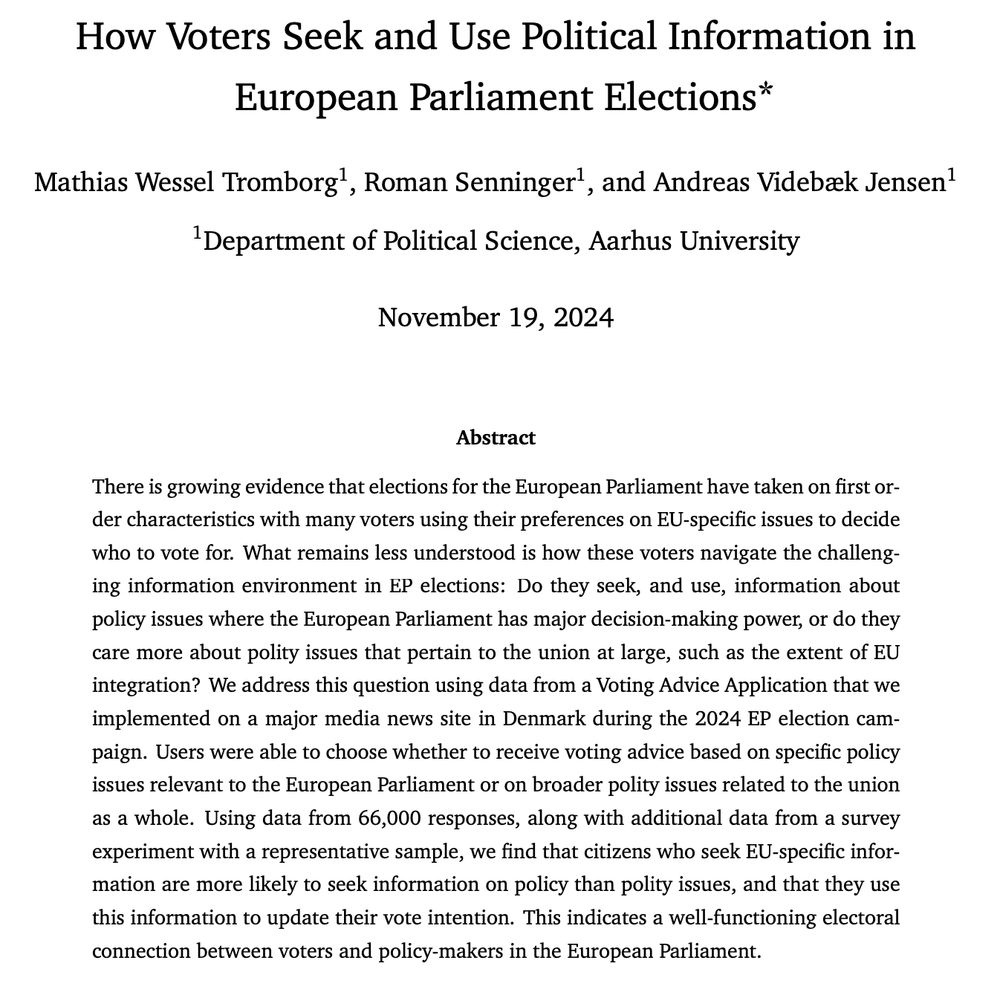
Promising news for the EU electoral connection! 🗳️🇪🇺
Our study on the 2024 EP election shows that voters are engaging with information relevant to the European Parliament's actual powers.
19.11.2024 16:57 — 👍 57 🔁 11 💬 1 📌 1
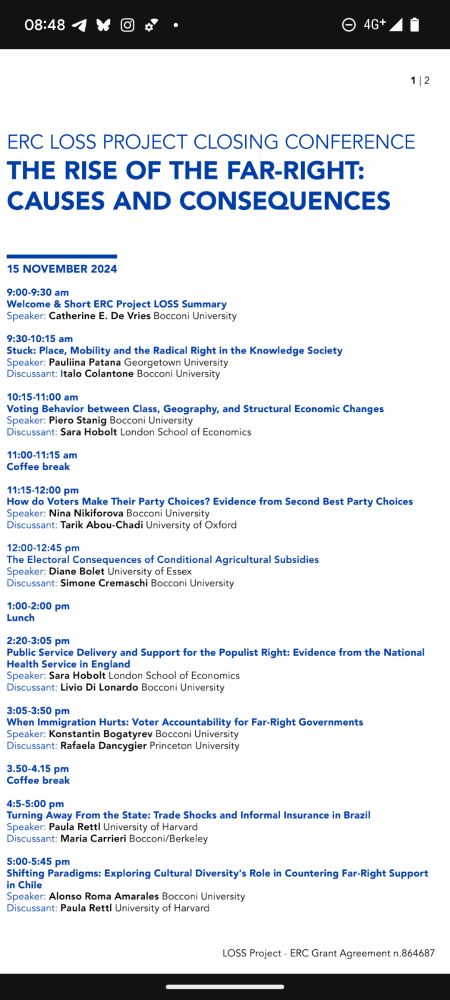
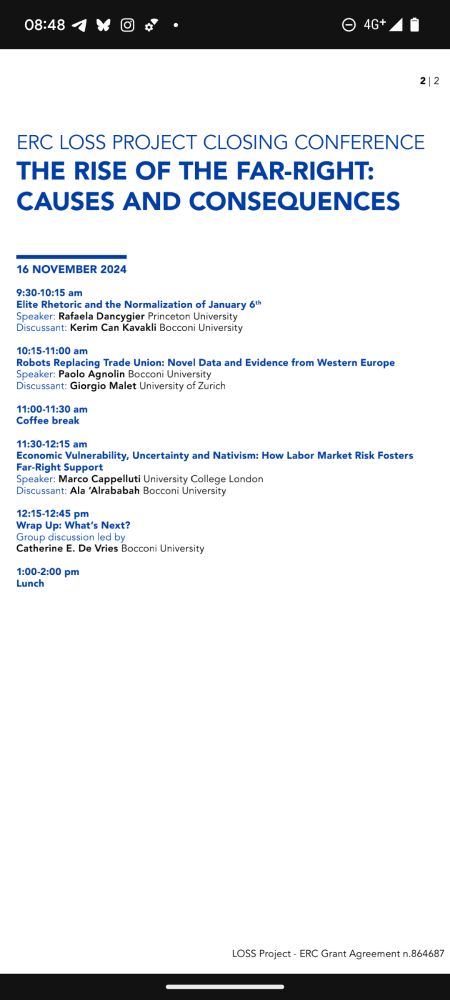
A fruitful discussion on the rise of the far right makes a great final chord of this ERC project LOSS, led by @catherinedevries.bsky.social at Bocconi. Happy to be a part of it!
16.11.2024 08:10 — 👍 9 🔁 3 💬 1 📌 0
UBS Professor of Economics, University of Zurich. Department Chair @uzh-econ.bsky.social
www.econ.uzh.ch/scheuer
Political Theory and Intellectual History. Politics of Architecture and Iconography. Some Public Affairs Commentary.
Posting in a personal capacity.
Texts mostly in LRB, Guardian, Foreign Policy, Architectural Review.
Representation: Wylie.
Postdoctoral Researcher at University of Vienna.
Dr in Political Science from Humboldt University of Berlin
Political science, political communication, electoral campaigns, targeting, party competition, public opinion polls
https://christina.gahn.at
Postdoc research fellow at Aarhus; PhD from Essex; protest violence; computational social science 🔬
https://www.winniexia.com
Political Scientist and Postdoc at WZB Berlin
I study crime, far-right extremism, immigration, and political behavior in Europe.
jeyhunalizade.com
UCL’s hub for research, engagement and teaching on Europe & the EU.
Subscribe to our monthly newsletter: https://mailchi.mp/ucl.ac.uk/sign-up
https://www.ucl.ac.uk/european-institute
Assistant Professor, Comparative politics, IE University| National identity and political behaviour| Experimental designs| Indian politics
Policy Fellow at the Jacques Delors Centre at the Hertie School, Berlin | Think tanking on social cohesion & just transition in the EU
Postdoc researcher in Political Science at the Polytechnic University of Turin.
Political economy, technological change, political behavior
https://www.polito.it/personale?p=gregorio.buzzelli
Political Scientist @leiden.
PI of ERC MIDEBT project studying opinions on public debt (midebt.org), AI, and security.
Assc. Editor ISR.
Co-founder REALdegrees.ai
Post Doc @goetheuni | prev. @MZESUniMannheim & @PolEconReforms | Interested in Political Economy, Political Conflict, Welfare States & Comparative Methods
https://www.goethe-university-frankfurt.de/135512626/Benedikt_Bender?locale=en
Associate Professor of Political Science and Deputy Director of CISE, Luiss, Rome. Author for Routledge and Palgrave. Cleavages, elections, new parties, party system change, technocracy, party competition, and voting behavior. Personal views only.
PhD student in Economic History, LSE.
nicholasfitzhenry.co.uk
Research: death, disease & doctors during Apartheid
Methods: Applied econometrics and historical demography.
Teaching: Industrial Rev., History of Middle East
Prof of Middle East Politics at NYU Abu Dhabi. Tunisia, Turkey, Gulf. PhD St Antony's College, Oxford. Rhodes, Fulbright, Harvard WCFIA. 14 years writing on Tunisia.
Religion & democracy. Tango & bizarre travel enthusiast. Perpetually craving Istanbul.
Researching autocratic politics, finance ministers & international cooperation at Stockholm University.
PhD Candidate @Harvard Gov. Political Economist researching on the politics of opportunity. Credit Access, Education, and Labor Market policy in US, Germany, and Japan + affects on global financial stability. On the market.
https://www.danieltroberts.com/
Research Fellow at @EUI | Political Scientist | public opinion, attitudes, political socialization, migration, quantitative methods | Author ‘Education and Tolerance’
www.lenkadrazanova.com
Political sociology at Freie Universität Berlin and WZB Berlin Social Science Center
PS: Political Science & Politics is the journal of record for the discipline. Email: ps@apsanet.org. Co-editors: Lina Benabdallah, Justin Esarey, Peter Siavelis, Betina Wilkinson. apsanet.org/ps

